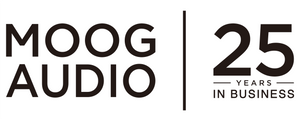In 1985, Korg's DW-8000 combined digital wavetables with rich analog filters to give users sounds which were impossible to create with analog oscillators. It's still a cult favorite today.
modwave builds on the DW legacy and transforms it into a modern monster synth, featuring incredibly deep wavetable oscillators, gorgeous filters, wildly flexible modulation, unmatched polyphony, comprehensive pattern sequencing, and immediately satisfying hands-on control.
modwave also introduces two unique new tools for creating dynamic motion: Kaoss Physics and Motion Sequencing 2.0. Kaoss Physics combines an x/y Kaoss pad with modulatable game physics to create a responsive, interactive controller that is—besides being powerful— a lot of fun. Motion Sequencing 2.0 brings the organic, continuously evolving patterns of the wavestate's Wave Sequencing 2.0 into the world of motion sequencing, including multiple lanes and real-time recording.
Like Wave Sequencing 2.0 (wavestate) and altered FM (opsix), modwave’s evolved wavetable synthesis delivers its own brand of completely unique sounds and a knob-per-function layout that makes customizing those sounds fast and easy. To start, there are hundreds of preset sounds empowered by this new architecture, organized by front-panel category buttons, and all instantly customizable via the four Modulation Knobs. modwave's distinctive wavetable timbres deliver aggressive basses & leads, and lush ambient pads will add a new dimension to your tracks. Those who want to dig deeper will find an endless source of discovery; you'll be finding new things in this synth for a long, long time. Save as many new sounds as you like; there's room for thousands more.
modwave synthesis engine
When we call the wavetable oscillators "deep," we are not kidding. Start with over 200 wavetables, each containing up to 64 waveforms—from thousands of individual waves. Use the 30+ Modifiers to change their basic character, and the 13 Morph Types to process them in real-time. Create new hybrids from any two wavetables using the unique, realtime A/B Blend. Quick math: that's over 230 million wavetable variations out of the box, before you even add modulation. No need to stop there, though! Load your own custom wavetables in Serum or WaveEdit formats; there's room for thousands more. Or, layer wavetables with samples from the built-in, multi-gigabyte PCM library.
Each Program has two full-featured wavetable oscillators, plus a sub oscillator/noise generator and any of a dozen stereo filter types, including the aggressive MS-20, sweet Polysix, and the newly enhanced Multi Filter. Animate almost any parameter using the massively flexible modulation system, with four triggerable envelopes, five LFOs, dual mod processors and two key-track generators–plus multi-lane Motion Sequencing and Kaoss Physics.
Even with all that synthesis power, playing up to four simultaneous wavetables per voice in a single Program, the modwave still achieves 32-voice polyphony, incredible for a wavetable synth. Layer two Programs together for double the possibilities.
Kaoss Physics
Kaoss Physics models a ball rolling on a surface and/or bouncing off walls. Start the ball by flicking a finger on the x/y pad, or launch the ball automatically using a trigger source such as Gate + Damper. You can also directly control the ball by holding your finger on the pad. The position of the ball produces four modulation signals, which can be used to control any modulation destination you like: the X and Y locations, the distance from the center, and the angle relative to the X axis. This method of applying automated modulation is a first, and the results are modulations that are engrossing and evolving.
There is a bump in the virtual surface, going either down or up, like a valley or a hill. You can set the height or depth of the bump, and choose one of several different shapes for its slopes. The surface has adjustable friction, so that the ball slows down as it travels. There are walls on the four sides of the surface, and when the ball hits a wall, it bounces off. Walls can slow down the ball, as if they were padded, or accelerate the ball, like bumpers in a pinball machine. The walls can also be removed entirely, so that the surface wraps around to the opposite edges like a vintage arcade game.
The modeled environment can create specific modulation effects. For instance, use a centered bump with negative height so that the modulation values always eventually return to 0. Or, position a bump with positive height on a side or a corner, to push modulation values away from that zone
Most parameters, including Tilt, Friction, Time, Bump Height and Position, etc. are modulatable. You can even modulate them from the Kaoss Physics outputs—for instance, try modulating Tilt X with Kaoss Y.
The result is an interactive controller that amplifies your physical gestures, transforming them into complex musical results. Did we mention that it's fun, too?


